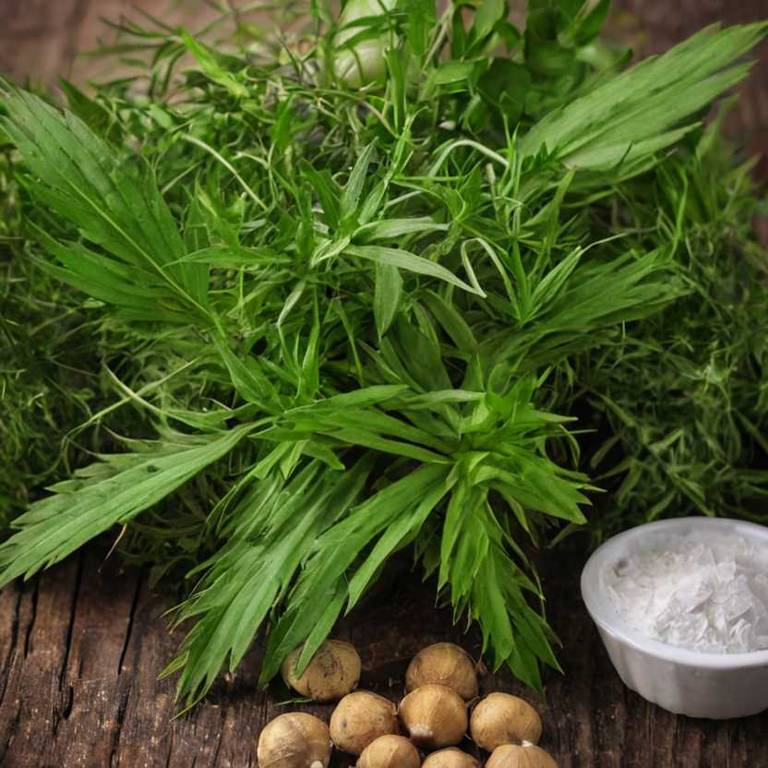Coconut Tree (Cocos nucifera)
Coconut Tree (Cocos nucifera) is a member of the Arecaceae family, native to Tropical Regions Of The Pacific Ocean, Indo-Pacific Region, and Coastal Areas Of Southeast Asia. Traditionally, its fruits, leaves, and seeds have been used for culinary uses, infusions, and decoctions.
This herb is particularly valued for its diuretic, anti-inflammatory, and tonic actions, and has a long history of use in traditional chinese medicine, ayurvedic medicine, and mediterranean herbal traditions.

Quick Facts / Key Information
| Common Name | Coconut Tree |
|---|---|
| Scientific Name | Cocos nucifera |
| Plant Family | Arecaceae |
| Genus | Cocos |
| Species | nucifera |
| Native Range | Tropical Regions Of The Pacific Ocean, Indo-Pacific Region, Coastal Areas Of Southeast Asia |
| Plant Parts Used | Fruits, Leaves, Seeds |
| Primary Medicinal Actions | Diuretic, Anti-Inflammatory, Tonic |
| Primary Traditional Systems | Traditional Chinese Medicine, Ayurvedic Medicine, Mediterranean Herbal Traditions |
| Historical Preparation Methods | Culinary Use, Infusion, Decoction |
Botanical Identity
- Scientific Name
- Cocos nucifera
- Common Name
- Coconut Tree
- Synonyms / Alternative Names
- Coconut Tree, Talavera Tree, Coconut Tree
- Plant Family
- Arecaceae
- Genus
- Cocos
Botanical Description
- Growth Habit
- Perennial herbaceous plant.
- Height
- It typically reaches a height of 10 to 25 meters.
- Leaves
- Broad leaves with upper surface dark green and lower surface pale green, exhibiting prominent midrib and parallel venation.
- Flowers
- Inflorescences are clustered, with actinomorphic flowers having three sepals and three petals, and stamens in multiples of three, with a tricarpellate gynoecium.
- Stems
- Elongated, erect growth habit with a single, unbranched stem, smooth, glabrous surface, and a woody, cylindrical cross-section.
Traditional Uses / Historical Use
Traditional Systems
- Traditional Chinese Medicine
- Ayurvedic Medicine
- Mediterranean Herbal Traditions
- Native American Herbal Medicine
Historical Preparation Methods
- Culinary Use
- Infusion
- Decoction
- Poultice
Medicinal Actions
- Diuretic
- Traditionally described as a mild diuretic, in cleansing-oriented uses.
- Anti-inflammatory
- Commonly referenced as a warming anti-inflammatory, in tissue-soothing contexts.
- Tonic
- As described in traditional systems, a cooling tonic, in whole-system applications.
- Expectorant
- In herbal texts, considered a soothing expectorant, for airway-related applications.
Active Compounds
- Flavonoid
- A chemical class commonly identified in plant tissues, especially flowers and leaves.
- Phenolic Acid
- Naturally occurring phenolic compounds present in many plant species.
- Saponin
- A chemical class frequently identified in herbaceous and woody plants.
- Tannin
- A class of polyphenolic compounds commonly found in bark, leaves, and seeds.
Modern Research Overview
Scientific literature concerning this plant spans multiple areas, including phytochemistry and laboratory research. Detailed analysis of published studies is not included at this time and will be added as part of future editorial expansion.
Safety & Contraindications
- General Precautions
- The use of this herb may warrant general caution in certain situations.
- Contraindications
- Some conditions have been cited as contraindications for the use of this herb.
- Allergies
- Allergic reactions associated with this herb have not been well documented.
- Drug Interactions
- Interactions between this herb and prescription medications are not clearly established.
- Toxicity
- Toxic effects associated with this herb have not been well documented.
- Pregnancy & Breastfeeding
- Use during pregnancy or breastfeeding has not been clearly established in available sources.
Preparation & Usage Methods
- Infusion
- A preparation method involving steeping plant material in heated water for a short period.
- Decoction
- This method uses sustained heat to extract compounds from firm plant structures.
- Poultice
- Plant parts are crushed or moistened and placed directly on the body.
- Culinary Use
- Leaves, flowers, or roots are used as ingredients in culinary preparations.
- Powder
- This method converts dried plant material into a uniform powder.
Growing, Harvesting & Storage
Growing / Cultivation
- Soil
- Prefers loamy soil with well-drained conditions. Typically grows best in organically rich soils.
- Sunlight
- Thrives in full sun. Tolerates full sun to partial shade.
- Watering
- Prefers well-balanced moisture levels. Tolerates periodic dry conditions.
Medical Disclaimer
The information provided on this page is for educational and informational purposes only. It is not intended to diagnose, treat, cure, or prevent any medical condition. Always consult a qualified healthcare professional before using any herb for medicinal purposes.